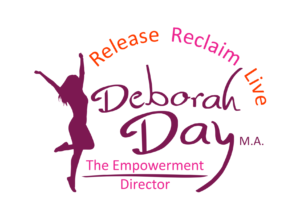Selfish is a bad word?
When it comes to relationships, for many selfish is a bad word with many negative connotations.
For some it is even a sin to be selfish. Unfortunately, many have labeled many forms of self-care as selfish. This makes it difficult to distinguish when it is okay to think about your own needs. Some have swung to the opposite of selfish and tend to be selfless. These people believe that denial of self is a good and pure way of living.
Are these your only two options: Selfish or selfless?
What Is Selfishness?
I want to take a moment and create some sort of working definition of these two words. This will better help you decide if you really are selfish and if you really want to be selfless.
An example of a selfish act would be if you have already eaten two pieces of pie and your coworker has not had any and there is only one piece left. Do you eat it anyway or let your coworker have it? Eating your third piece while she has not had one is an example of being selfish. When I looked up the definition on my phone it gave me this definition of selfish, “(of a person, action, or motive) lacking consideration for others; concerned chiefly with one’s own personal profit or pleasure.” Is this how you function the majority of the time? We all can be selfish sometimes (it is part of our human nature) however, now that you read this example of selfish you probably aren’t as selfish as you think.
What is Selflessness?
What about being selfless? The word somewhat defines itself. In short, taking no consideration for yourself; putting others and their needs above your own; denying the self. Many of us have been taught the importance of thinking of and caring for others. As a mother, I know this well. There is nothing wrong with considering other’s needs.
The issue with this way of functioning is when you avoid your own self in the name of caring for others. If this self-denial continues over a long period of time, it can cause serious emotional, physical and spiritual damage. What if you could find a balance—a way that allows you to care for others and still care for yourself? The word I have been using for this is self-full.
An Alternative to Selflessness and Selfishness!
This is a version of you that knows when to say yes to helping others, when to say no, and when to say yes to your needs. The mantra for the self-full person is “I matter too.” You also matter! You too are important. How many times can I emphasize this? A well-balanced person both gives at times and is also able to receive from others. This person knows it is not only okay to fulfill her needs but necessary in order to best help others. This person is aware of their physical, emotional and spiritual needs and takes responsibility for meeting them. She functions from a place of fullness, not emptiness. Her giving is free of obligation and guilt and comes from a full heart. It is guided by clear choice and love.
My hope is that those of you who struggle with prioritizing yourself will learn to be more comfortable thinking of what you think, feel, need and want. I understand there are people who are very well versed with thinking of themselves. I am speaking to those who know you have been neglecting yourself for too long. Learn to believe that you deserve your time and attention. And know that learning to be more self-full will allow both you and your relationships to benefit. In my field we call that a win-win situation!




